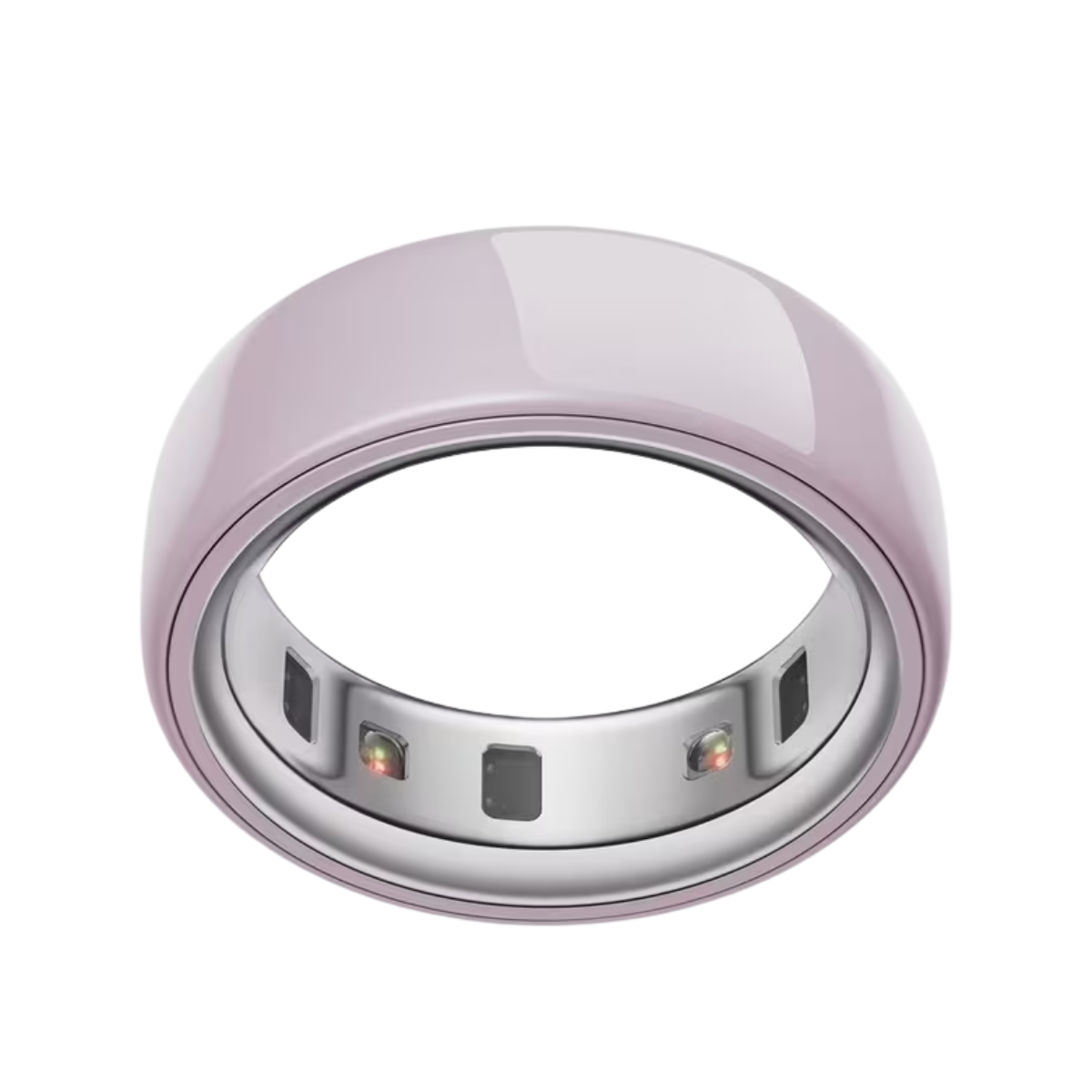Feeling Fatigued? How to Avoid the Dreaded Winter Slump, Now the Clocks Have Gone Back
It's officially hibernating season.


I don't know about you, but something about 4 pm sunsets makes me want to crawl under a duvet and binge-watch Sex And The City episodes with a cup of tea in hand. If your energy dips the moment the clocks go back, you’re not imagining it. When daylight hours shorten, our bodies and brains take a hit, from sluggish moods and disrupted sleep to a sharp drop in motivation to move.
The clocks going back marks more than just an extra hour in bed; it throws our circadian rhythm - the body’s 24-hour internal clock - slightly off balance. According to Dr Suzanne Wylie, GP and medical adviser for IQdoctor, “The shift to darker evenings can trick the brain into thinking it’s later than it really is, leading to earlier releases of melatonin, the hormone that promotes sleep. It usually takes a few days for the body to recalibrate, which can leave us feeling more fatigued in the meantime.”
This fatigue is amplified by how little daylight we’re exposed to. Sunlight helps regulate serotonin - the feel-good hormone linked to mood and energy - and when it’s in short supply, we feel it. Some studies suggest that daylight saving time has been linked to depressive episodes. Research by Sport England found that almost three-quarters (72%) of women in the UK change their outdoor activity routines during winter. That rise reflects growing safety concerns and the impact of shorter daylight hours, particularly for women who rely on outdoor exercise to boost their mood and energy levels.
So if you’ve found yourself snoozing your alarm, skipping evening workouts or feeling a little ‘meh’ lately, there’s science behind it. The good news? Experts say there are simple, realistic ways to dodge the dreaded winter slump and reset your rhythm before the fatigue fully hits.
Keen to read more expert-led wellness features? Don't miss our explainers on the trending winter arc challenge, top tips for exercising in winter and our Health Editor's go-to cold weather workouts. We've also got expert-led guides on the best supplements for winter and best sunrise alarm clocks, here.
Swerving the winter slump when clocks go back: Your expert guide
What does the clocks going back mean for our body and brain?
When the clocks go back, our internal rhythm can become out of sync with the natural light–dark cycle. “It’s largely down to our circadian rhythm,” explains Dr Wylie. “The body’s internal clock regulates sleep, hormones and energy levels. When daylight hours shorten, this shift affects melatonin production, making us sleepy sooner, and reduces serotonin levels, which impacts mood and motivation.”
In short, the body’s chemistry is being subtly told it’s nighttime long before it really is. Add in cold, grey mornings and fewer daylight cues, and it’s no wonder we feel groggy. Reduced vitamin D, serotonin dips and disrupted sleep patterns combine to make even the simplest tasks - like lacing up your trainers - feel like a chore.
Celebrity news, beauty, fashion advice, and fascinating features, delivered straight to your inbox!
Why do we feel more tired when we’re exposed to more darkness?
According to Hannah Belsham, Health and Wellbeing Physiologist at Nuffield Health, the main culprit is light - or lack of it. “During winter, reduced daylight exposure can suppress serotonin and disrupt melatonin production, leaving us feeling sluggish in the day and wired at night,” she says. Essentially, our brain’s software update runs late, throwing off our natural ‘wake and rest’ signals.
Morning light is crucial here. Even a short burst of sunlight (or exposure to a SAD lamp) helps reset your internal clock, boost alertness and stabilise mood. Without it, that 3 pm slump hits harder, and the temptation to hibernate grows stronger.
Darkness also changes how our bodies conserve energy. “Cold temperatures cause blood vessels to constrict, which reduces the body’s ability to sense fluid loss,” says Belsham. “This can lead to dehydration, which impairs concentration, alertness and mood - even mild dehydration can leave you feeling fatigued.”
In other words, darker days don’t just mess with your mind; they affect your body’s entire operating system.
Expert-approved tips on how to avoid a winter slump
1. Get outside - even when it’s grey
“Regular exercise and daylight exposure are two of the most effective ways to reset your circadian rhythm,” says Dr Wylie. A brisk walk on your lunch break or swapping your morning scroll for a ten-minute walk outdoors can do wonders for your energy levels and mental clarity.
2. Try a winter-friendly workout
When outdoor exercise feels unappealing, low-impact, indoor options can help. Emma Kuwertz-Normal, National Swim Manager at Nuffield Health, says swimming is the ultimate winter workout: “It’s a full-body exercise that builds strength, boosts mood and helps regulate sleep - the calming effect of water helps settle the nervous system, making it easier to switch off.”
3. Keep your sleep routine consistent
Dim your lights two hours before bed and switch from cool, white bulbs to warm, amber tones. “Leaning into low-lit evenings can actually help you sleep better by mimicking sunset cues,” says Belsham. Soft lighting, stretching, journaling or even a warm bath can help signal to your brain that it’s time to rest.
4. Don’t forget hydration
It’s easy to overlook in winter, but staying hydrated is essential for energy and focus. “In colder months, our thirst response can drop by up to 40%,” says Belsham. Swap chilled water for herbal teas, clear soups or broths - they’re over 90% water and provide extra nutrients. Dr Kim Goldin, Senior GP at Nuffield Health, adds that “even mild dehydration can lead to poor concentration, low mood and fatigue.”
5. Add a little heat to your meals
Feeling sluggish? Turn up the spice. “Spicy foods containing capsaicin can temporarily boost metabolism, circulation and energy expenditure,” says Belsham. Think chilli, turmeric and ginger - all of which have anti-inflammatory properties and provide a subtle serotonin lift.
6. Allow yourself to adjust
Winter fatigue isn’t a failure of willpower; it’s biology. Acknowledge that your body is adjusting to less light, colder weather and slower rhythms. Opt for nourishing foods, consistent movement and a realistic bedtime routine instead of fighting it.
When the clocks go back, it’s natural to feel more tired - your body is literally recalibrating to a darker world. But with small adjustments to your light exposure, hydration, movement and mindset, you can protect your energy (and mood) through the colder months. Try setting small goals to keep up a routine, such as daily movement, or prioritising your skincare routine. And if all else fails, the occasional cosy afternoon under the duvet might just be exactly what your body needs.
MC-approved essentials to get you through winter

As tempting as it is to stay indoors during the winter, science proves that getting outside is essential to boosting serotonin during the darker months. For chilly outdoor walks, you're going to need a coat that guards against all elements - and New Balance's outerwear never lets us down.

When you swap your outdoor runs for indoor flows or a few laps in the pool as the afternoons fade, these flared yoga pants from Tala are the ones you’ll keep coming back to: comfy enough to relax in, sturdy enough to move in. Think of them as your go-to winter workout companion - cosy, practical, and easy to wear.

If you’re feeling out of sync as the days get darker, it might not just be in your head - your circadian rhythm could be crying out for balance. The Oura Ring 4 tracks the things that keep that rhythm in check, from sleep quality and body temperature to heart-rate variability, helping you understand exactly how the shift in daylight is affecting your energy and mood. With its sleek, barely-there design, it’s the kind of tech that works in the background while you focus on feeling more aligned - even when it’s pitch black by 4 p.m.
Why do I feel more tired when the clocks go back?
The shift to darker evenings affects your circadian rhythm, which is your body’s internal clock. It triggers earlier melatonin release (the sleep hormone) and reduces serotonin (linked to mood and energy), leaving you feeling sluggish. Even minor changes in daylight exposure can make a noticeable difference.

Georgia Brown is a freelance journalist covering fashion, lifestyle, heath and fitness. With bylines in Harper’s Bazaar, Women’s Health, and HELLO! where she formerly held the position of Senior Lifestyle & Fashion Writer, she’s also the co-founder of run club Sunnie Runners and is a devoted marathoner. With a particular love for sustainable fashion and slow living, Georgia can often be found sifting through London's best vintage stores to find the best pre-loved pieces.